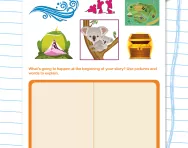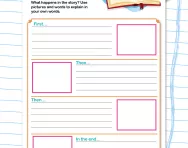Important update from TheSchoolRun
For the past 13 years, TheSchoolRun has been run by a small team of mums working from home, dedicated to providing quality educational resources to primary school parents. Unfortunately, rising supplier costs and falling revenue have made it impossible for us to continue operating, and we’ve had to make the difficult decision to close. The good news: We’ve arranged for another educational provider to take over many of our resources. These will be hosted on a new portal, where the content will be updated and expanded to support your child’s learning.
What this means for subscribers:
- Your subscription is still active, and for now, you can keep using the website as normal — just log in with your usual details to access all our articles and resources*.
- In a few months, all resources will move to the new portal. You’ll continue to have access there until your subscription ends. We’ll send you full details nearer the time.
- As a thank you for your support, we’ll also be sending you 16 primary school eBooks (worth £108.84) to download and keep.
A few changes to be aware of:
- The Learning Journey weekly email has ended, but your child’s plan will still be updated on your dashboard each Monday. Just log in to see the recommended worksheets.
- The 11+ weekly emails have now ended. We sent you all the remaining emails in the series at the end of March — please check your inbox (and spam folder) if you haven’t seen them. You can also follow the full programme here: 11+ Learning Journey.
If you have any questions, please contact us at [email protected]. Thank you for being part of our journey it’s been a privilege to support your family’s learning.
*If you need to reset your password, it will still work as usual. Please check your spam folder if the reset email doesn’t appear in your inbox.
How to tell your child a story – without a book

Wondrous tales of adventures, far-off lands and humorous characters have always captivated youngsters (and us grown-ups too!). But, according to Tina Bilbé of the Society for Storytelling, telling your kids stories from a young age has a whole raft of educational benefits too.
“Children who have listened to stories from a young age will have better concentration levels,” says Tina, “So when they start school they will be able to listen to the teacher, and concentrate on what is being said more easily.
“Storytelling also teaches children to love stories, which then helps when they are learning to read later on – not just story books, but general educational books and exam papers. It boosts their understanding and confidence in written words, making them better in exams.”
Set books aside
While most parents read from a book at bedtime, the Society for Storytelling promotes discarding the books and telling a story from memory. Tina says telling family history stories, for example, can help you bond with your child, and cultivate an interest in the family and the world around them. Verbal storytelling also encourages kids to interact with the story, offering them chances to influence and take part in the action themselves.


Download a FREE Creative Writing toolkit!
- KS1 & KS2 workbooks
- Bursting with fill-in prompt sheets and inspiring ideas
- Story structure tips, style guides and editing suggestions
Next time you tell a tale, try asking them lots of questions as you go along, like “What do you think happens next?” or “What should this character do?”, or even just a simple “Do you like…?”. Tina says this helps capture children’s imagination and inspires creativity by opening them up to other possibilities and outcomes.
“This shows children that stories are things to be played with – they change and move – which gives children confidence later on when they are asked to write a story,” says Tina.
Interacting with stories can also help with memory. For example, with repetitive nursery rhymes such as The Gingerbread Man kids have to remember and produce the different elements. This is great for memory training.
Top tips for braving storytelling without a book
- Start off with a family history story to ease you in gently. This should be a story you know inside out, so it should flow relatively easily – but don’t worry if it doesn’t!
- Visit your local library for inspiration. Look for stories that take your interest, so that you’ll enjoy telling them. Once you have chosen a story, re-tell it in your own words.
- If you’re not a big reader, try listening to stories on CD and then re-tell the story in your own words from memory. This is a great way to pick up tips from professional storytellers, too.








